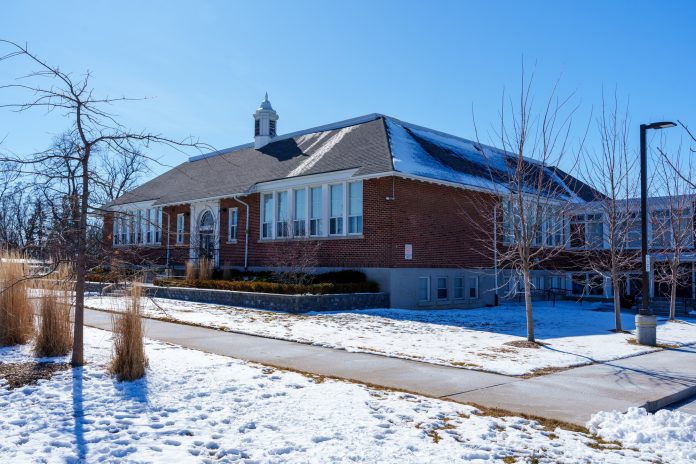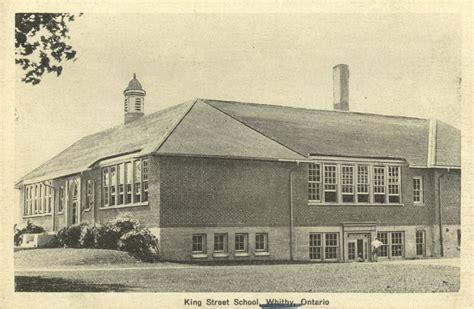
For Tracy Mainwaring, R.A. Sennett was a special place from a simpler time.
Mainwaring started at as a student at the school in 1976. At the time, it was a kindergarten through Grade 6 school in the heart of her community in Whitby, Ont.
She remembers the old maple trees, playing in the big open field behind the school and singing Christmas carols in the main hall before the winter break.
Mainwaring and many of her classmates walked to school every day from her home down the street.
“I could actually see it pretty much from my house,” she said. “It’s like, yeah, it hasn’t burned down. I got to go to school today.”
The school did in fact burn down, however, almost 60 years earlier.
Built in 1854 and originally called the Henry Street Public School, the fire destroyed the building and led to the Board of Education spending $55,000 to rebuild it in 1921 ($791,000 today), according to archival pages from the Globe newspaper at the Whitby Public Library. They called the new build King Street Public School.
The school still stands today, on territory watched over by the Anishinaabe, Haudenosaunee, Mississaugas and Huron-Wendat of Wendake, continuing its use as a place of learning for almost two centuries.
Construction took two years and the Town of Whitby borrowed $60,000 from Wood Gundy and Co. to pay for it, according to archived stories in the Toronto Evening Telegram.
The board added four rooms to the building for another $70,000 in 1959. And in 1979 they renamed the school after it’s first principal, R.A. Sennett, who was 89 at the time, while Mainwaring studied there.
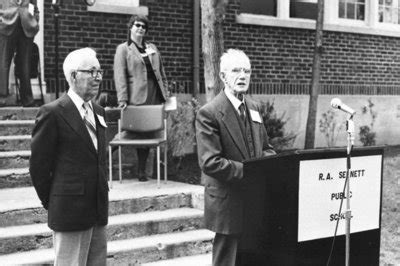
As a student, Mainwaring said the school made an impact on her.
“I think when you’re young that’s like one of the few things you have to build your identity on,” she said. “It was that small school where teachers all knew you. It’s comfort.”
So, when it came time for her to get married in 1997, Mainwaring decided to have the ceremony at Sennett.
She said she didn’t have any affiliation with a church and wanted to get married somewhere “interesting and not just a boring box hall.” Her husband wasn’t sure at first, but the price was right.
“He’s like, ‘Is it cheap?’ I was like, ‘Yeah, it was cheap,’” Mainwaring said. “So, he was willing to go for it. We made a compromise. We had a pastor. One of those names from the back of the newspaper ads.”
Just like in her school days, Mainwaring said she and her bridesmaids walked from her old house, down the familiar street, and into the meeting hall she carolled in as a child to get married.
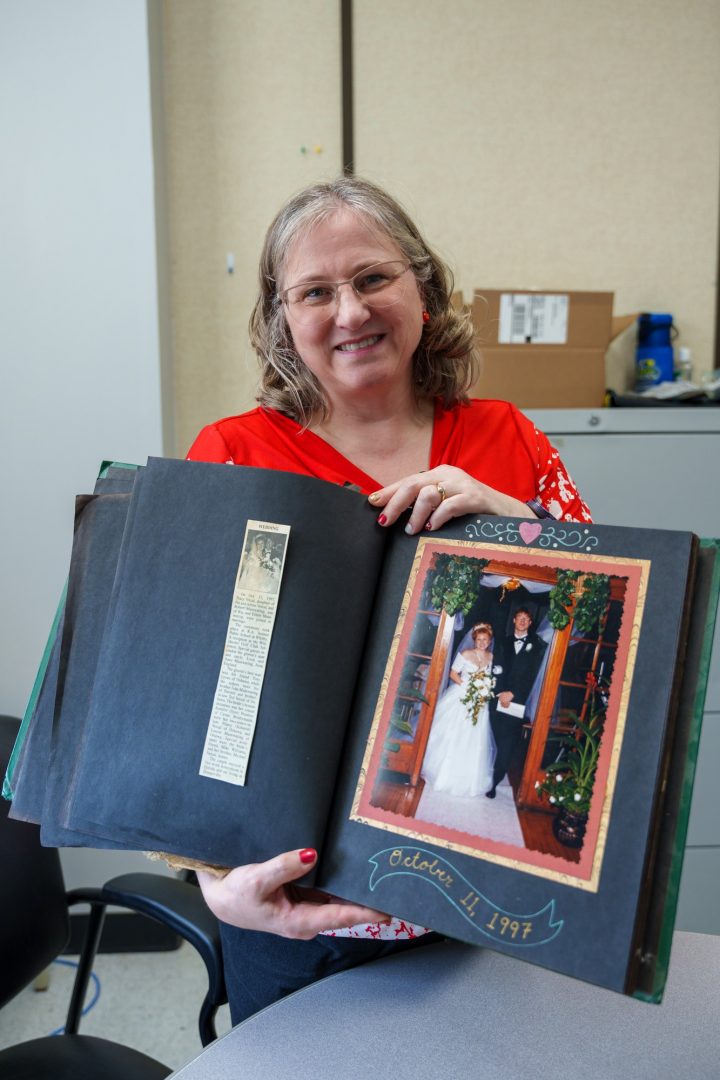

Almost 30 years after her wedding, Mainwaring came back to R.A. Sennett, this time to save it.
The school fell into disrepair. In 2003, the Durham District School Board (DDSB) declared R.A. Sennett too expensive to fix, according to a 2011 Whitby Public Library historical report on the school written by archivist Brian Winter.
Demographics shifted, and only a few school-aged children lived in the neighbourhood. The report said the DDSB closed the school permanently in 2010 and split the remaining students between two other schools, West Lynde and Sir William Stephenson. At the time, the school grounds had been in continual use for 157 years, starting a year before Whitby became a town.
Mainwaring joined a Facebook group dedicated to saving the school from demolition as community members waited to see what would become of R.A. Sennett.
“We were really concerned that it would be demolished,” she said. “That was the big thing because DDSB was into demolishing schools. We were also a little concerned that it would be just totally disregarded for its heritage and turned into condos or something that didn’t really fit in with the neighborhood.”
But another group was also following the school closure, and they had plans to keep it a place of learning and a place of employment in Whitby.
In 2012, the co-founder of 360 Insights, Todd Skinner, grew interested in buying the old school. He felt a place of learning would be the best choice for his company’s head office, because “leaders are learners,” according to Travis Dutka, culture curator at 360 Insights.
360 Insights is a tech company specializing in loyalty programs and rebates, and it invests in education in the community. Dutka said the team went from 55 people to 700 in the 11 years he’s worked there. The company sponsored Durham College’s entrepreneurship centre, FastStart, and its namesake office.
Dutka said the team had six offices spread across Durham — in converted old houses, next to a skate shop and above a dentist’s office. Skinner wanted to have a central campus for the entire team to work from and he wanted it to be in Whitby.
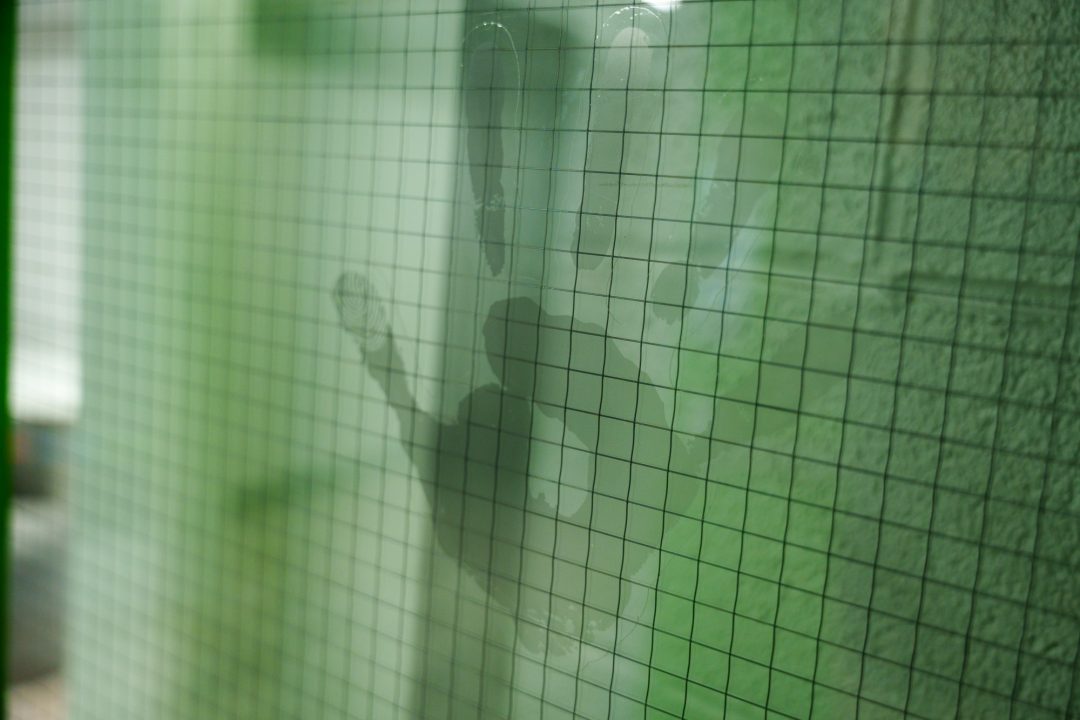
He set his sights on R.A. Sennett, but Dutka said buying the school took years.
“It’s tricky because the board can’t sell them for a certain amount of time,” Dutka said. “They have to hold them. So that is part of the reason why we couldn’t buy it, and we had to negotiate with the board. It was super tricky to buy it.”
Until Dec. 2023, Ontario school boards had to follow the Disposition of Surplus Real Property regulation, O. Reg 444/98, with a new regulation taking over in 2024, according to Lisa Bianca, head of facilities services at the DDSB.
The regulation sets a list of priority buyers who must be given the chance to purchase school property first, along with months-long waiting periods and processes for accepting offers.
Skinner did not live to see his vision become reality. He died on Sept. 10, 2013, at 40 years old.
His colleagues carried his dream forward. 360 Insights successfully purchased the school and began renovations in 2018, documenting the process with a video series on YouTube.
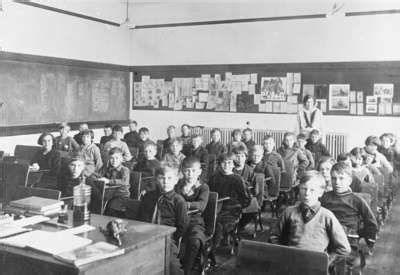

Dutka said the almost two-hundred-year-old building presented challenges for the tech company. Brick walls meant bad reception in the lower floors, so the company had to run kilometres of internet cables and electrical wiring to build their new offices.
“This was a big one of the big infrastructure investments we had to take,” Dutka said. “The brick makes it ridiculous for reception down here. Like, bad. So awful. We have like little boosters everywhere trying to get internet.”
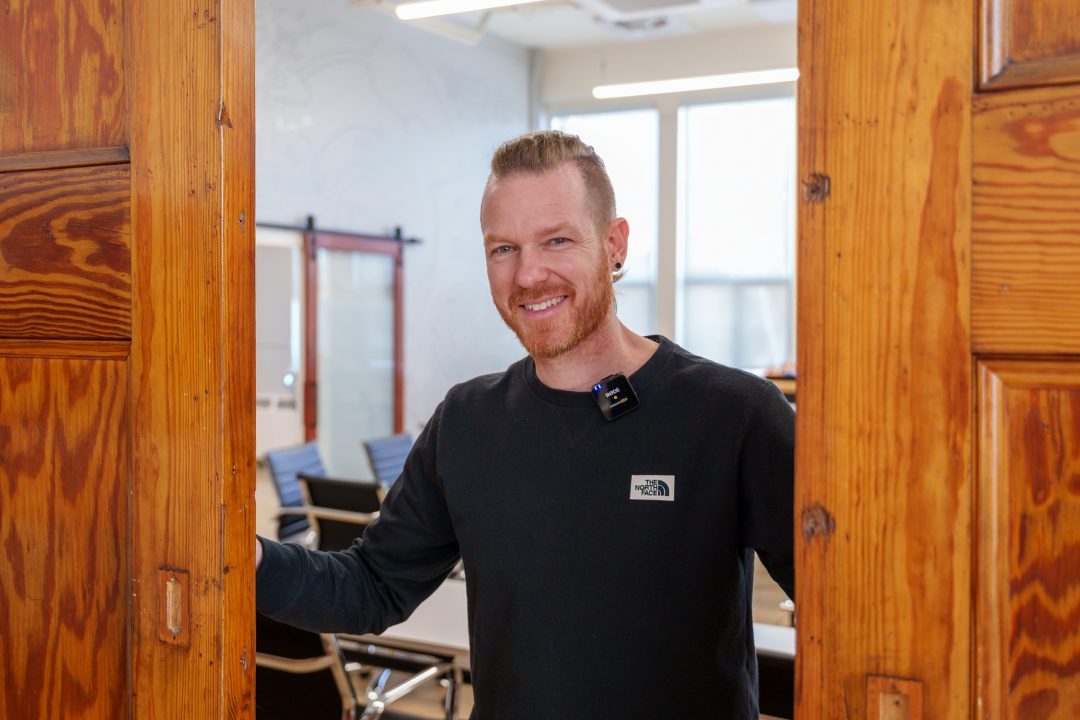
Wanting to keep the building original, the team removed paint from the brick and wood finishings and discovered pieces from the first build of the school in the 20s.
“A lot of it we had to sandblast because it was all painted or drywalled over,” Dutka said. “We [found] some amazing doors. And they were drywalled over. We didn’t know they were there until they started going through the [renovation] process.”
To help keep the look and feel of the classrooms, Dutka said the team replaced the old blackboards with black whiteboards.

Dutka also said Skinners fingerprints are all over the office, literally and figuratively. The team named the main space, where Mainwaring sang and married, Skinner Hall. And they custom built a table for the entryway with parts from his bicycle and a compass to represent his place as their north star.
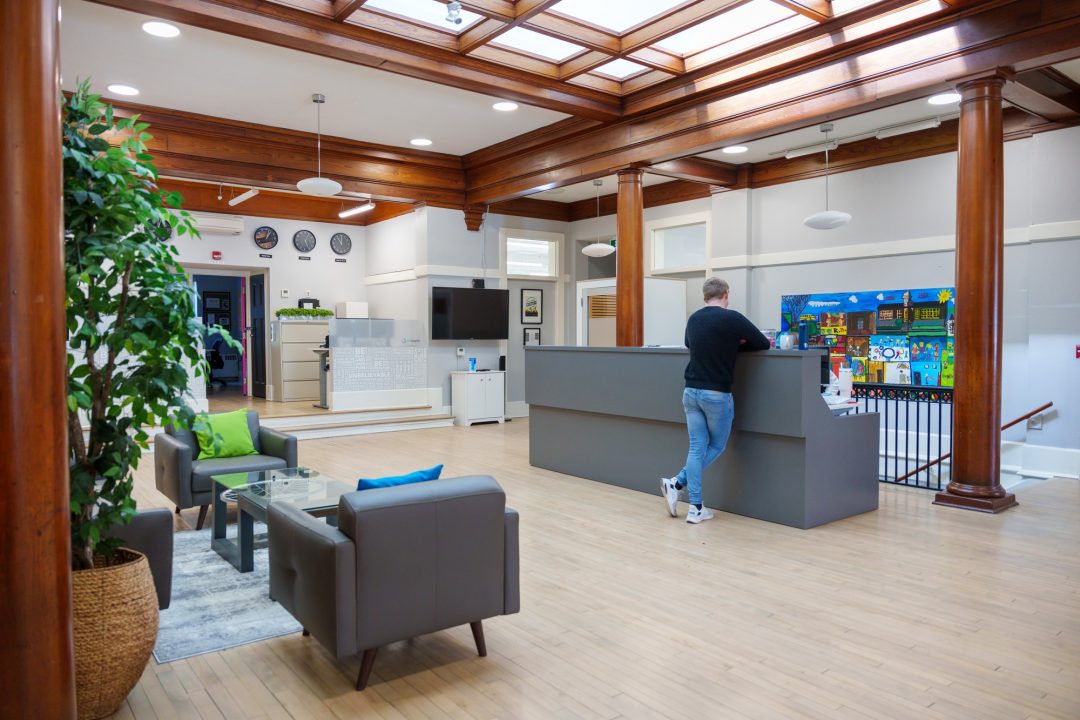
At the end of a hallway marked with Skinner’s favourite quote, they installed vinyl decals with Skinner’s hand and fingerprints on the doors.

Before the Covid-19 pandemic, Dutka said 350 employees worked at the head office every day. They had lunch meetings, worked out in the converted gymnasium with a CrossFit exercise routine named after Skinner and held barbecues with food trucks in the parking lot.
Today, the school tends to be quieter as most of the team is permanently working from home, and 360 Insights is now a global company, making eight acquisitions in the last four years, according to Dutka.
“For the most part, we’re like 90 per cent working from home,” Dutka said. “I come in once a week kind of thing and there’s like six people here today. But when clients come on site, they come here, so it’ll be all of a sudden. There’ll be no one here, and then there’ll be 40 people here.”
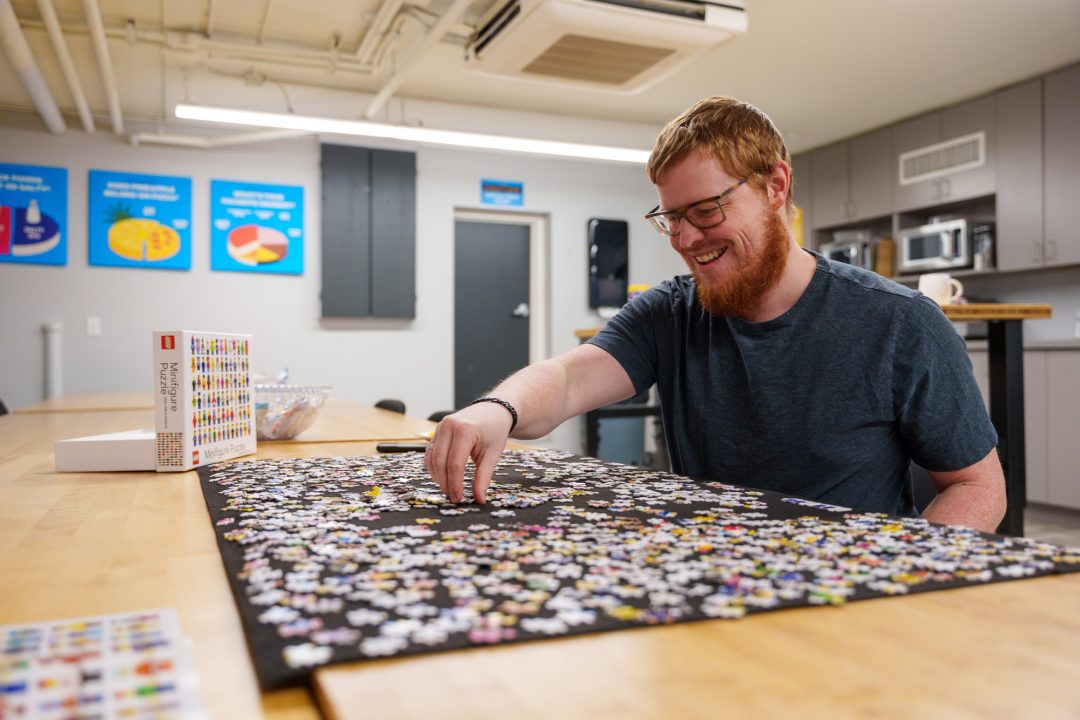
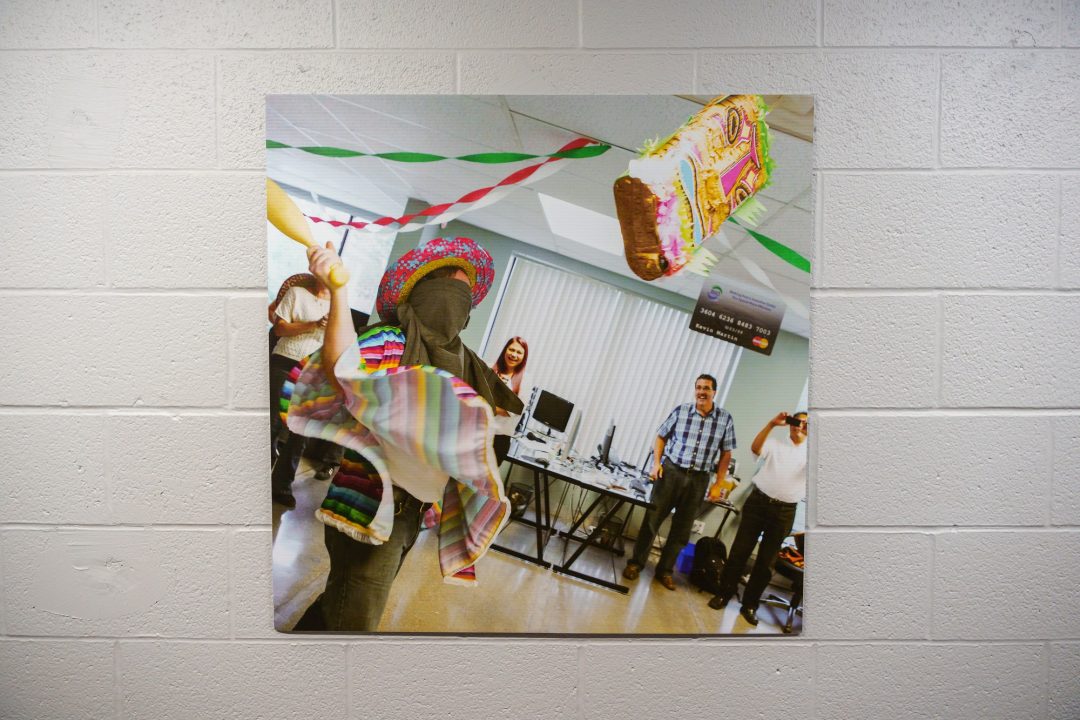
Dutka said Skinner’s values of learning, growth and reinvesting in the community are part of 360 Insight’s culture and DNA, and, despite the global acquisitions, R.A. Sennett is still headquarters.
For Mainwaring, she said appreciates the work the 360 Insights team put into the school, and their decision to maintain it as a place of learning. She was able to visit after the renovations finished.
“When I toured it, I was really pleased to see that it still felt a lot like a school in many ways,” she said. “I’m happy to see the business is there and providing an opportunity for employment in the community. There’s not a lot of that in Whitby. I’m glad to see that it’s still there and I can still say to my kids, when we drive by, that’s the school.
“R.A. Sennett was a lovely place and a lovely time. It would probably be outdated now as a school, so it’s probably best that it’s been moved on to something that has kept the character.”




